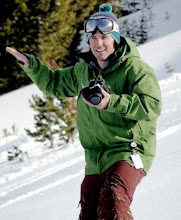
Nor less, I trust,
To them I may have owed another gift,
Of aspect more sublime; that blessed mood,
In which the burthen of the mystery,
In which the heavy and the weary weight
Of all this unintelligible world, 40
Is lightened:
AND
And I have felt
A presence that disturbs me with the joy
Of elevated thoughts; a sense sublime
Of something far more deeply interfused,
Whose dwelling is the light of setting suns,
And the round ocean and the living air,
And the blue sky, and in the mind of man;
I picked these two lines because they both have a word that I remember appearing in more than a few English classes over the years--Sublime. I usually question why a surfer band out of Long Beach, California seems to invade my literature classes with some degree of frequency so this time I did a bit of snooping around on the Sublime. I actually found the Wiki article pretty darn informative on the Sublime and many of the short sections about the development of the modern conception of the divine echo most of the things we have talked about in class. Most notably, like an Epiphany, the sublime carries a two sided connotation with many of the primary philosophers obsessed with the sublime. The sublime isn't always rosy grasping the sublime evokes both awe and terror.
Joseph Addison wrote in his book "Remarks on Several Parts of Italy Etc" where he attempted to describe the sublime through his journey in the Swiss and Italian Alps. "The Alps fill the mind with an agreeable kind of horror." Addison's experience was scarily beautiful or maybe scared him into appreciation or amazement. Either way, his view of the sublime is a feeling of the most unpleasant pleasure. His paradoxical approach to the Sublime, painful pleasure, reminds me a hell of a lot of Eliot and all of the paradoxes he uses in the 4 Quartets. Sublime is indescribable with with anything but a paradox much like an epiphany is only describable with paradox. I found this to be a very interesting observation of the Sublime and having been to the Alps myself, I cant say I disagree.
Then I stumbled onto a passage by Edmund Burke out of his book "A Philosophical Inquiry into the Origin of Our Ideas on the Sublime and Beautiful."
"WHATEVER is fitted in any sort to excite the ideas of pain and danger, that is to say, whatever is in any sort terrible, or is conversant about terrible objects, or operates in a manner analogous to terror, is a source of the sublime; that is, it is productive of the strongest emotion which the mind is capable of feeling"
This quote made me think back to all that I discovered while reading Hopkins. Humans are doomed to suffer much more than experience happiness. Or maybe the only feeling worth having is pain? Ether way they all sound like a bunch of pessimists. Or maybe I just didn't quite understand the type of pain Burke was trying to get at, but I kept on reading and the answer just sort of popped up.
"Thambos is in Greek, either fear or wonder; deinos is either terrible or respectable"
I don't really think all of these writer/philosophers believe that the Sublime (or Epiphany) is primarily a painful (as in physical pain though I would be willing to bet a certain amount of physical pain is involved) experience. Rather, just like thambos or deinos in Greek, pain is implied or written into the Sublime (or epiphany) it is part of the connotation. I think the pain of loss that comes along with a fleeting feeling of sublime or an epiphany makes pain a necessary and unavoidable part of the feeling.
All of this brings me back to one of the first days in class. Dr. Sexson was commenting on how the english word "Awesome" is over used and has lost most of its true meaning because of phrases like "duuuudddeeee, that was AWESOME." I think he was implying that "Awesome" has lost the pain associated with it. At some point, something "awesome" wasn't just cool, it hurt like hell, physically, mentally, spiritually, etc.
As for Wordsworth, I think for the most part he had a much more positive less painful view of the sublime and especially the sublime in nature. Though maybe not as he looks on nature, reflects on the sublime to hear "the still, sad music of humanity."





